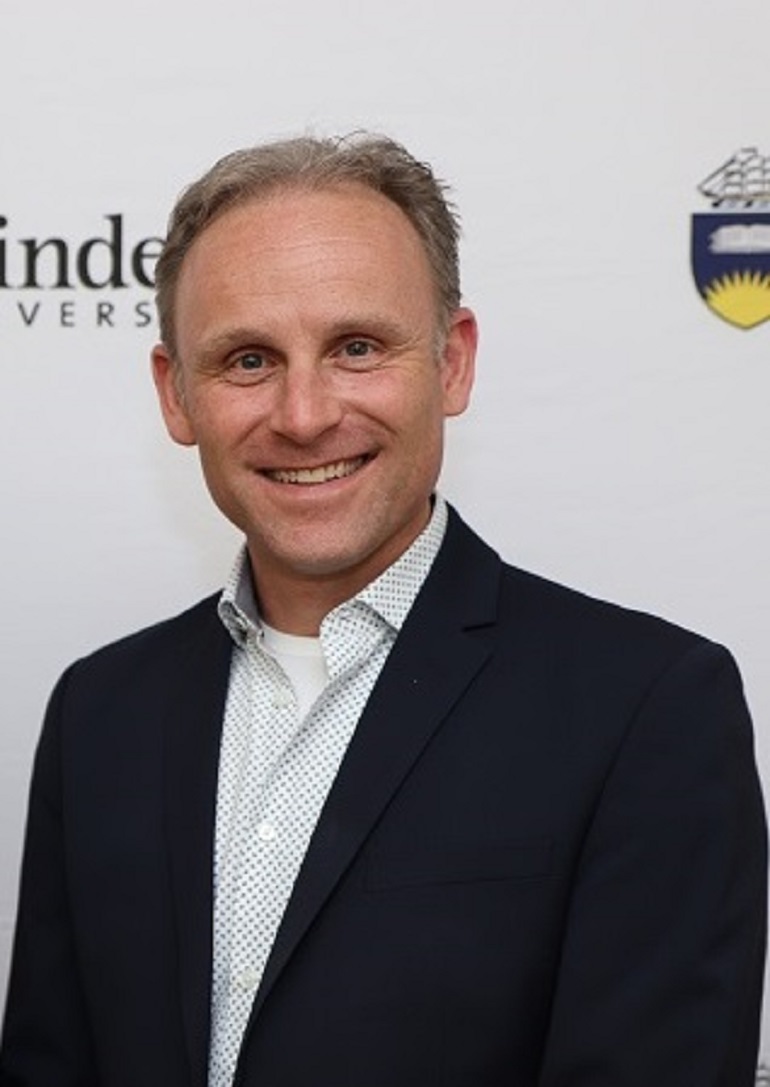
Hundreds of South Australians suffering from atrial fibrillation stand to benefit from a clinical trial led by Caring Futures Institute member, Professor Jeroen Hendriks.
The Central Adelaide Local Health Network (CAHLN) project based at the Royal Adelaide Hospital aims to reduce hospitalisations and deaths from the common heart condition.
Atrial Fibrillation (AF) is the most common heart rhythm disorder and is characterised by an irregular and often rapid heart rate that can increase the risk of strokes, heart failure and other heart-related complications, and consequently can lead to increased hospitalisation.
Flinders University Professor of Cardiovascular Nursing Jeroen Hendriks says the specialised AF clinic, which opened at the RAH in June with support from The Hospital Research Foundation Group, offers a new care model that could pave the way for future treatment of AF patients.
“The Integrated Care (iCARE) AF Clinic is based on the concept of integrated care and uses a patient-centred approach to educate and empower people with AF to support them in self-managing their care which includes lifestyle modification,” says Professor Hendriks.
“A multidisciplinary team including a cardiologist, nurse, the patient and their carer, provides a comprehensive treatment approach.
“Our team identifies risk factors, such as obesity, sleep apnoea, high blood pressure or diabetes and puts in place a comprehensive treatment plan covering these aspects. The comprehensive treatment approach includes the treatment of AF, prevention of strokes, and the management of risk factors and lifestyle modification.
“Patients use an app on their phone or iPad, which provides them with information on AF, the symptoms and treatment, as well as on risk factors and how to modify their lifestyle. They can also input incidents of AF and any other symptoms they are experiencing, which can then be discussed with the iCARE-AF team.
“The use of new technology also plays a key role, with decision-support technology guiding the clinical team through the care process.”

The trial – believed to be the only one of its kind in Australia – is underway at the state’s only two iCARE-AF clinics, at the RAH and the Cardiovascular Clinic at Norwood, and will track the treatment of about 1400 AF patients for two years.
There are also plans to implement the clinic at other sites, including The Queen Elizabeth Hospital and Flinders Medical Centre, and the trial would also expand to patients at these hospitals.
In 2017 and 2018 there were over 72,000 hospitalisations for AF in Australia and the condition was associated with 9% of deaths in 2018.
CALHN CEO Professor Lesley Dwyer said the iCARE-AF clinic is a welcome addition to the suite of outpatient services provided at the RAH.
“This is an example of the world-class care and research that we are proud to offer, as it really will help to change the lives of South Australians,” Professor Dwyer says. “We look forward to seeing the clinic expanded to The Queen Elizabeth Hospital and other hospitals in the near future.”
Professor Hendriks was among a handful of speakers who presented at the Royal Adelaide Hospital’s annual research showcase, RAHsearch between 13-15 October.
He is the Leo J Mahar Cardiovascular Nursing Chair, a clinical academic joint appointment between CALHN and Flinders University, co-funded by The Hospital Research Foundation Group and Flinders University.
The Hospital Research Foundation Group CEO Paul Flynn says more research is critical in the fight against AF to prevent hospitalisations and deaths.
“Heart disease is Australia’s biggest killer – a scary statistic when many of the risk factors are preventable,” he says.
“We are proud to be supporting the iCARE AF Clinic as a fantastic example of specialist teams working together to provide comprehensive and integrated care for the community.”

